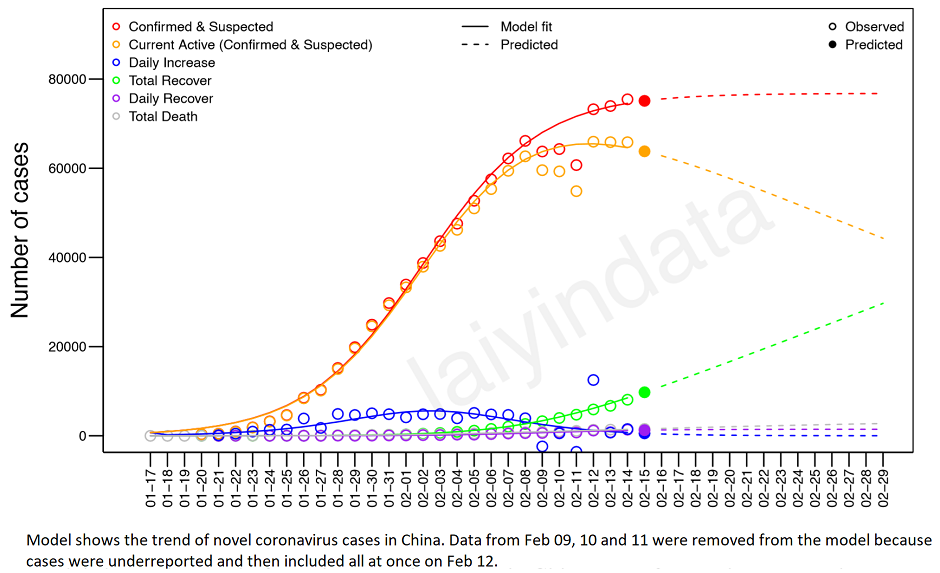12 Mar 2020
A new study led by a Xi’an Jiaotong-Liverpool University researcher in the wake of the SARS-CoV-2 epidemic indicates that for patients with mild COVID-19, prescribing corticosteroids has no clinical benefit.
The small-sample observational study of 31 patients with mild COVID-19 was conducted in designated hospitals in Wuhu, Anhui province, China, from 24 January to 24 February, with 11 of these patients receiving corticosteroid treatment.
Statistical analysis showed no association between the virus clearance time, length of hospital stay, or duration of symptoms with corticosteroid use.

The researcher, Dr Lei Zha, is a critical care specialist in Wuhu and is undertaking a PhD project on antimicrobial resistant bacteria, supervised by Dr Boris Tefsen of the Department of Biological Sciences and Professor Elmer Villaneuva of the Department of Health and Environmental Sciences at XJTLU.
Dr Zha has led a team of authors that produced this paper on the COVID-19 patients, which the Medical Journal of Australia has just highlighted and is publishing.
Dr Zha, who describes the result in the published paper as a “preliminary result,” spoke about the value of this research.
“We analysed data from patients in Wuhu, and we didn't find association between corticosteroid use and clinical outcomes in patients with COVID-19, which means no harm, no benefit,” Dr Zha said.
“However, all the patients enrolled in our research had mild disease, so we only can conclude corticosteroids didn't affect clinical outcomes in COVID-19 patients without ARDS (Acute Respiratory Disease Syndrome).
“Patients with a combination of COVID-19 and ARDS may benefit from corticosteroids but clinical evidence is still required to support this.”
This research also found that patients with both hepatitis B and COVID-19 were shown to have the virus longer in their bodies than patients with COVID-19 only. The authors indicated that this finding requires further study.
Dr Zha credits achieving his Master’s degree from XJTLU in molecular bioscience as being the pathway through which he was able to understand molecular aspects of the virus.
“I am also a clinical doctor, and these combined factors help me to understand the molecular mechanism (pathophysiology) of the disease and therefore know what aspects of the disease we still lack understanding of and for which further clinical evidence needs to be gathered. This informs what research we conduct related to these aspects,” Dr Zha said.
Dr Zha credited the co-authors of this research paper, expressing gratitude to his research supervisors at XJTLU, Professor Villaneuva and Dr Tefsen.
“I want to express my appreciation to the good work medical personnel are doing globally to fight this new disease,” Dr Tefsen said.
“This research undertaken by Dr Zha and his co-workers adds required knowledge about COVID-19, at a critical moment in time.”
“Being able to understand more and share that understanding amongst the wider community, including the World Health Organisation (WHO) may help in efforts to assist in the control and spread of this virus.”
Laureate Professor Nick Talley, editor-in-chief of the MJA stated that this article of research is one of two articles that are being published pre-print by the journal, and that it would be published in the next available print edition of the MJA.
“To ensure rapid and broad dissemination, the article preprints have been uploaded online to mja.com.au and a commentary has been published in InSight+,” wrote Professor Talley.
“We have also shared the information with the WHO with the authors’ permission.”
The published paper can be read here.
By Will Venn
12 Mar 2020
RELATED NEWS

Model indicates current COVID-19 infections in China already declining
A mathematical model set up by an ad-hoc group of scientists indicates the number of currently infected novel coronavirus cases in China began a pattern of d...
Learn more








